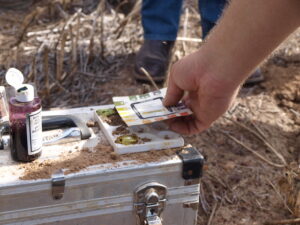
UPDATE: Kathleen Folbigg, who was wrongfully convicted for the murders of her four infant children, has been offered a $2 million ex gratia payment by the New South Wales (NSW) government. This decision has sparked outrage and is being labeled as “profoundly unfair” and “unjust” by advocates and legal representatives.
On Thursday, solicitor Rhanee Rego condemned the amount as a “moral affront,” stating it is “woefully inadequate and ethically indefensible.” Rego emphasized the devastation Folbigg has endured, saying, “Kathleen lost her four children. She lost 20 years of her life; and she continues to feel the lasting effects of this ongoing trauma.”
After spending two decades behind bars since her wrongful conviction in 2003, Folbigg was issued an unconditional pardon by Governor Margaret Beazley and released on June 5, 2023. Attorney General Michael Daley stated that the government’s decision followed “thorough and extensive consideration” of the materials provided by Folbigg’s legal team.
However, the proposed payment has not satisfied those advocating for justice. Rego insisted that the figure does not reflect the severity of the pain and suffering Folbigg has faced, highlighting the urgent need for an inquiry into how this amount was determined. “When Lindy Chamberlain was exonerated in 1994, she received $1.7 million for three years in prison. Kathleen Folbigg has spent 20 years in prison, yet her compensation is only $2 million,” Rego said.
Greens MP and justice spokesperson Sue Higginson expressed her disbelief at the government’s offer, calling it “shocking and insulting.” She highlighted that Folbigg has not only lost 20 years of wages but also her children, home, and employability. “Ex-gratia payments are meant to be acts of goodwill, yet what the Minns Labor Government has done is offer a disgraceful payment in bad faith,” Higginson claimed.
Folbigg’s situation continues to draw attention, with many describing her treatment as a further indication of systemic failure. As the fallout from this decision unfolds, the call for accountability and adequate compensation for Folbigg grows louder.
Authorities are now under scrutiny as the public and advocates demand explanations for this controversial payment. The broader implications for wrongful conviction cases in Australia are significant, with many questioning the integrity of the justice system that failed Folbigg for so long.
As the situation develops, it remains crucial to watch for any changes or updates regarding Folbigg’s case and the government’s response to the growing backlash.





